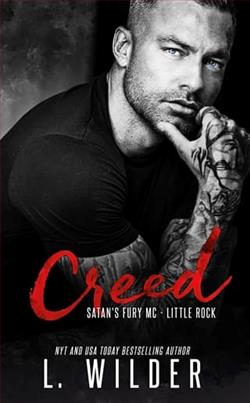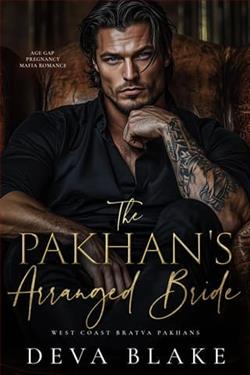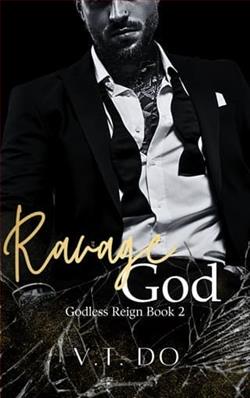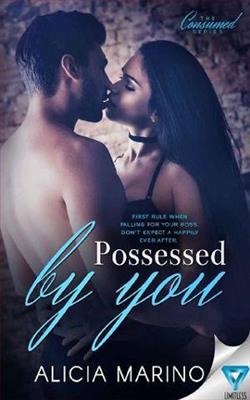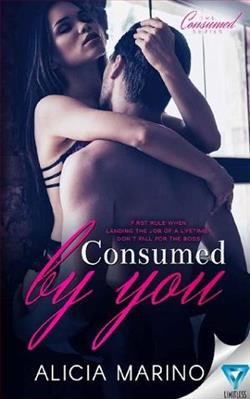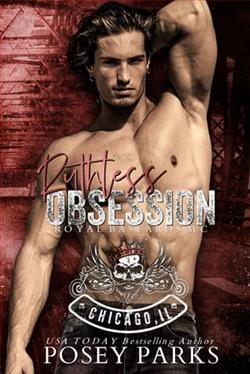Page 63 of A Storybook Wedding
We’re reviewing my pages. I’m trying not to focus on the sweat pooling under my arms. I’ve got my notebook open to a clean page and my pen at the ready. There are three other students in this workshop besides me: Megan (a first semester student), Drew (a graduating student who only needs to be here as a final graduation requirement), and Harold, who was in my workshop last semester. Megan is about forty, and her workshop submission is a short story about a woman in love with two best friends. (Spoiler alert: she dies at the end, which seems both extreme and unnecessary since the depth of these relationships was somehow missed on the page. There’s also a wildly explicit sex scene taking up six of the eighteen pages, and it’s not doing the story any favors.) Drew submitted the first eighteen pages of his thesis for us to read: it’s a historical novella following a family through the early days of the Korean War. It’s fine—the writing is competent, and some lines are well put together, evoking a great deal of imagery, but the premise bores me, and I suffer through those eighteen pages in much the same way as I’m sure others in the group feel they’ve suffered through mine. Harry Potter, who is not donning a cloak this time but who has grown in an actual goatee to stroke, submits a speculative piece about a man in witness protection who becomes a dog walker in southern Idaho. I have no idea what the point of it is, but I write feedback with thoughtful questions in an attempt to be a good steward of other people’s art—in much the same way that I can only hope they will do with my work.
Pages 170 through 188 of my novel were the most gut-wrenching pages I’ve ever written. They were also the most cathartic. I’m pretty sure that when Bryce and Jamie started dating, innocuous as it may have seemed, there was always a piece of me that wondered if they had eyes for each other back when he was with me. I wanted to ask her if he was as selfish (or maybe just ignorant) in bed with her as he was with me or if he ever talked about me when they were dating—I mean, I was his ex, and who else do you talk about when you’re dating someone new besides the someones of your past?
Never mind the fact that despite myself, I missed him back then. When he left for Vancouver, a tiny piece of me might have broken apart just a little bit. My rational brain understood that he was bound to leave. He was a great ballplayer, and he was going to get drafted. But it definitely stung a little that he disappeared into thin air, literally overnight, without even offering to try to do the long-distance thing, as if all those years together meant nothing. I wasn’t even important enough to keep on standby. Even his let’s be friends suggestion was a thinly veiled attempt at a consolation prize, and then just a few years later, the stars align for him and my sister?
The eighteen pages are not a rant though. Nobody likes a rant. These pages depict the moment my main character, Natalie, receives a phone call from her sister telling her that the thing she’s doing with the MC’s ex-boyfriend is a whole lot more than casual. Natalie hears this information, holds it together during the conversation, and then unfolds into a flashback of the best day she ever had with him when they were together, which happened to be an outdoor concert they went to at the beach, followed by a make-out session in the sand and a long walk where they discussed their hopes and dreams for the future. It was agonizing to relive that flashback, as it was the only part of the story that wasn’t sprinkled with fiction dust. Natalie’s optimism is so blissful, and when held in contrast to the news of him seriously pursuing her sister, it evokes the same emotions that one might experience if they watched a kitten get run over by a train.
At least that’s what Nate told me.
So when seated in this workshop, I’m reminded that Nate thought these were good pages and that his opinion matters more to me than anyone else’s here, so I don’t need to worry about the feedback I receive. I brace myself, and Alice Devereaux asks me to read the first page of the piece aloud, so I do.
The phone rings, and Natalie notices that the number on the screen, coupled with her sister’s photo, immediately turns her stomach now. They usually text one another. There’s no reason to be calling, unless…well, unless it’s something important.
Natalie knows it’s going to be bad from the moment she answers the call. Gina waits too long to respond. Only a beat, but Natalie knows her sister. This is the girl who, at eight years old, thought she was dying when the doctor told her that her swollen nipples were actually breast buds. The very same girl who begged Natalie to come with her to the bathroom the first time she had her period in school. This girl—Natalie’s baby sister—shared a bed with her every Christmas Eve until she was twenty-three years old and moved into her own place.
No, Gina would never pause before greeting Natalie unless what she was about to say was going to destroy her.
And then it does.
The words come slow, as if Gina can’t even spare Natalie the compassion of ripping the Band-Aid off quickly. “There’s, um, something I need to tell you,” she begins. Natalie can feel the nervous pops of gas exploding in her belly, filling her with the bloat of a dead fish. “It’s just… Ryan and I…well, you know how we’ve been sort of seeing each other?” she continues.
Natalie swallows suddenly, noticing that her throat is a desert, devoid not only of moisture but also of words. She lets out a guttural sound, which serves to let her sister know that she is still alive, if barely.
“Thank you, Cecily,” Alice Devereaux says. “Now who would like to begin?”
Harold raises a hand. “Having read some of Cecily’s work before, I have to say, I found this piece to be really well executed. The unfolding of this scene reads very universally. The emotions transcend age. I enjoyed it a lot.”
Well, hot damn, I think. That was such high praise that I suddenly don’t even notice the resemblance between Harold and Daniel Radcliffe.
“I agree,” says Megan. “I felt like this sequence was very clean—there’s a great balance between the character’s inner life and her outer reaction to this news. It’s impressive that it’s written in third person, but just based on the physical descriptors of how the news hits her, the reader feels the same inner devastation that you might experience if it was written in first person.”
This is an interesting note, especially since Dillon Norway and I decided that the entire piece was more effective in first person—a decision we made after I submitted this piece several weeks ago.
“Yes.” Drew nods. “Even though I’ve only been given this selection, I already feel for the character. Some of the lines are so vivid. Like this one, on page one hundred seventy-six: Natalie’s chest becomes paralyzed, her lungs threatening a walkout like the one the seniors conducted over gun control last year. Her brain shuts down, and the part of her body responsible for empathy dissolves into a void of empty space, a holding cell for memories and the all-encompassing life force of future possibilities. It’s beautiful writing. You can immediately identify with what the character is going through.”
“In the next part, she’s thinking to herself, Sometimes I miss you so much it’s hard to remember anything else. It’s so heartbreaking, especially when you realize she’s saying that about her sister,” Megan adds. “The loss for Natalie is worse than it would be if it were just that they had been killed in a freak accident. Here are these two people who she loves or has loved, who have been two of the most important people in her life, and they’re both making a conscious decision to hurt her. It’s awful in its relatability.”
I scribble down some of the commentary, awash with surprise that these comments are, so far, all positive.
This continues for about ten minutes as they move through the piece. I can’t figure out what it is—Is this only happening because of my association with Nate? I wonder. Last time I was in this position, I was torn to shreds, but this time, it’s like I’m a completely different author. There’s no way I got good in such a short period of time.
Finally, it’s Alice Devereaux’s turn to speak. “I’ll start by saying that I agree with much of what’s been expressed here. I think this is polished prose, and the reader doesn’t need to have been on the journey with this character through the first one hundred and seventy pages of the story in order to feel the heartbreak she’s enduring. The theme of loss is evident from the first sentence. The use of flashback is powerful, and it moves the story forward, which is exactly what we want to see in flashback placement,” she says, referencing her workshop from the previous day. “It’s fine work. Really first-rate.”
There’s no animosity in her tone, no sarcasm in her commentary. I’m shocked. Considering how nasty she’s been to Nate, I assumed that she would antagonize me as well, especially since she’s in a position of power in the workshop setting.
But I was wrong. She’s nothing but kind and supportive.
And this unexpected turn of events feeds my fragile ego in a way I never dreamed possible.
I start to gush, telling my colleagues and Professor Devereaux that I’m done with this manuscript and that I’m planning to start querying it in a few days. I tell them about my research, the work I’ve put in on my query letters. They nod, smile, and wish me luck as if they really mean it.
They submit their feedback letters to me, and I place them in the Responses folder in the back of my binder. I can’t wait to go back and tell Nate how completely different it all went this time around. But first, we have a five-minute break, and then Professor Devereaux is conducting a presentation about social media.
I consider a cup of coffee, but my blood is already racing through my veins. Instead, I text Nate. Workshop went great! Can’t wait to tell you all about it!
Attagirl, he replies. So glad to hear but not surprised.
There’s not much time to revel, and when the group reconvenes, Alice Devereaux launches into a slideshow about the importance of social media in a publishing career, sharing metrics about case studies of extremely successful commercial authors. She explains how social media has evolved to be a place for book lovers, starting with the launch of Amazon as an online bookseller and moving through platforms such as Instagram and TikTok. She discusses how the influencer culture of these platforms has created the opportunity for new work to go viral. She dissects the genres most affected by these platforms, and then she says—while looking directly at me—that many commercial genres are almost wholly dependent on these types of platforms for the discovery of new talent.









